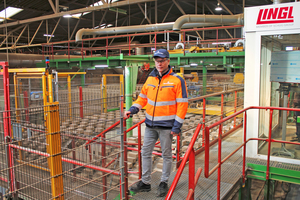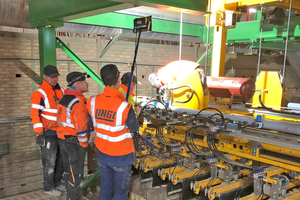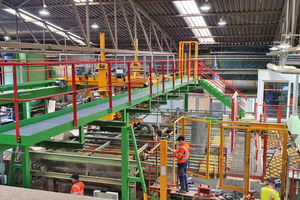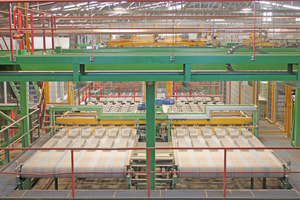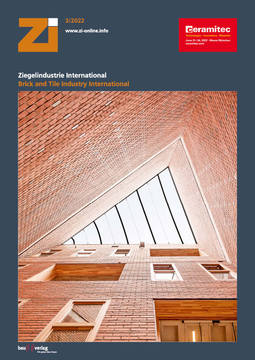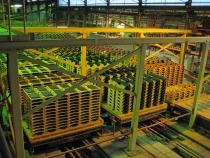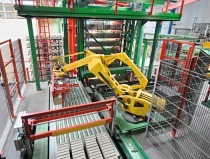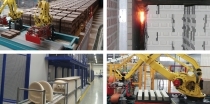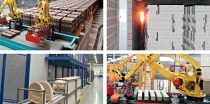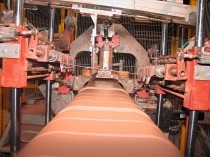Challenge becomes a milestone:
Reconstruction of the setting plant in the Wienerberger plant Kijfwaard West
The Bavarian-Swabian mechanical engineering company, Lingl Anlagenbau GmbH, was commissioned by the Dutch Wienerberger plant Kijfwaard West under the condition of an extremely short conversion and downtime. The dismantling of the existing setting plant and the installation of the new one in the existing production plant threatened to be delayed due to bottlenecks in delivery logistics. But then the all-clear and enthusiasm on the part of the customer: "With a great team effort and a top-performing installation team, Lingl, with the support of the employees of Kijfwaard West, succeeded in reducing the downtime from 20 to 13 days," Michel Groenewegen, Operations Manager at the Wienerberger plant Kijfwaard West, is pleased to report. "The Lingl team was able to repay the trust with a top performance and satisfy us," Groenewegen continues. The Operations Manager comments on the exact background in the interview.
MG: Kijfwaard West is the largest clinker plant in the Netherlands in the field of large-format clinker with moulded strip, the so-called type KK80 clinker. Four different formats of clinker bricks and pavers are produced and sold here for extensive projects such as pavements and general infrastructure measures. In the paving sector, more than 75 million WF are produced at the site per year.
MG: There are three main reasons for this project. Firstly, we wanted to increase the capacity in the plant by ten per cent. To achieve this, the output of the setting plant had to be increased by 15 per cent.
In addition, our goal was to increase the buffer between unloading and setting plant from three to six or seven kiln cars. The individual plant components can now be operated more independently of each other. Thus, the plant efficiency could be increased significantly.
Thanks to a new safety concept consisting of mechanical, electrical and optical safety elements, the workplace safety could be adapted to the state of the art and, at the same time, the plant operability and accessibility could be extremely improved, which resulted in a considerably more stable production process.
As a result, an optimised production planning, which takes into account the frequent format changes but also the line maintenance, is now ensured with increased output. Less downtime of the line means higher efficiency!
MG: Definitely the downtime! The specified downtime for dismantling and re-commissioning the new setting plant was 13 days. All those involved considered this to be the biggest challenge of the project. In the run-up to the project, there were still doubts as to whether Lingl would be able to meet this target. Especially in view of the generally tense situation on the procurement market, the Corona pandemic and also the insolvency of Lingl, which was not overcome until early summer 2021.
However, Lingl was able to convince us, as a member of the Schug Group and newly positioned, to continue to be the reliable and trustworthy partner for Wienerberger.
The reconstruction project was jointly tested several times in advance and successively optimised. With a great team effort and a top-prepared assembly team, Lingl together with the Kijfwaard West team succeeded in realising the downtime of 13 days. Lingl was thus able to repay the trust placed in it with a top performance!
MG: The biggest challenge currently facing the ceramics industry is without doubt the legally required reduction of CO2 and the associated reduction of energy consumption. Gas and electricity are major cost drivers in a brick factory.
MG: We are constantly working on the energy optimisation of the entire plant. Lingl supports us in this and will continue to be a strong partner for Wienerberger with new and innovative approaches! We are also researching the dematerialisation of our raw material chains, i.e. we are trying to use fewer and fewer raw materials while maintaining the same product quality, or to put it another way: We are constantly working on the optimal composition of the material.
In addition, we are of course looking for ways to replace fossil fuels with alternative, sustainable energy sources.

